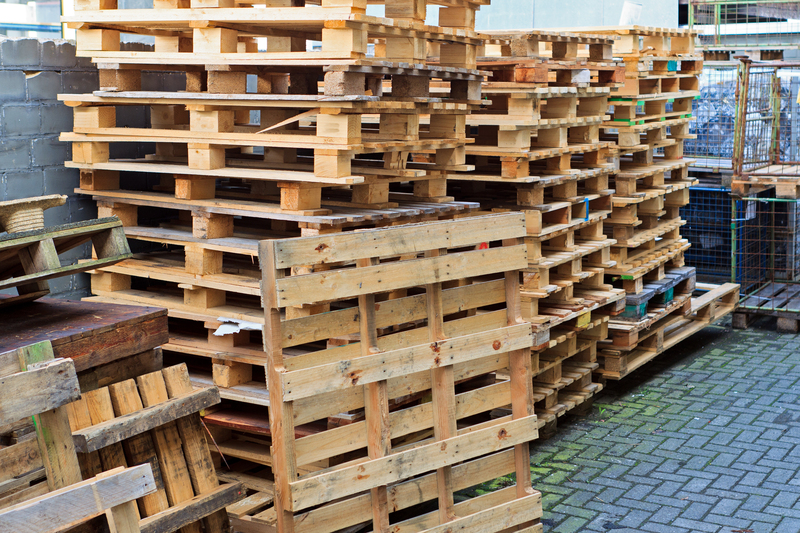
Solutions for When Your Garbage Isn't Collected
Every household at some point has likely faced the unpleasant surprise of having garbage left uncollected. When your garbage isn't collected, it can lead to various problems beyond just unpleasant odors. From attracting pests to affecting neighborhood aesthetics, uncollected garbage can quickly escalate into a significant concern. This guide offers practical solutions and informative insights to help you navigate this issue efficiently.
Understanding Why Your Garbage May Not Have Been Collected
Before diving into solutions, it's crucial to understand the common reasons why garbage collection might be missed:
- Schedule Changes: Garbage collection schedules might have changes due to public holidays or unforeseen circumstances. Checking for these changes online or in the community bulletin is essential.
- Improper Sorting: If your area mandates waste separation, failure to do so could result in non-collection.
- Blocked Access: Vehicles, snow, or debris blocking the path can hinder collection services.
- Overfilled Bins: Many municipalities have regulations on bin weight and fill level. Overloading your bin could result in it being left behind.
- Payment Issues: Some areas require regular waste management fee payments. Ensure your account is up to date.
Immediate Steps to Take When Garbage Isn't Collected
Once you've identified why the garbage wasn't collected, you can take specific actions. Here's what you can do to address the problem:
1. Contact Your Service Provider
_Call_ or visit the website of the local garbage collection service to find out why the collection was missed. Most providers have dedicated helplines and responsive customer service. Make sure to note the date and reason if they provide one.
2. Check Community Boards or Online Alerts
Many municipalities now offer online alerts or mobile apps that update you on potential disruptions in services. These can be excellent sources for information on service interruptions or schedule changes.
3. Verify and Follow Waste Sorting Requirements
If improper sorting is a cause, educate yourself on local guidelines. Here are general tips:
- Separate compostable materials from recyclables and general waste.
- Rinse out containers and bottles before disposing of them.
- Be aware of special disposal requirements for hazardous wastes such as batteries or electronics.
Long-Term Solutions for Avoiding Future Non-Collections
Addressing immediate concerns is helpful, but ensuring long-term compliance and avoiding future missed collections require a proactive approach. Here are some effective strategies:
1. Set a Reminder for Collection Days
Create a regular reminder on your phone or calendar about your area's garbage collection days. This can help ensure you put out your bin on time and align with any changes that may occur.
2. Develop a Waste Management Routine
Implement a routine for sorting and disposing of trash effectively. A designated place in your home for recyclable materials can make adherence to guidelines easier and more manageable.
3. Stay Informed About Local Waste Management Policies
Regularly checking updates from your local city council or waste management authority can help you stay updated on any policy changes, preventing future non-compliance issues.
The Environmental Benefits of Proper Waste Management
Beyond the direct advantage of preventing missed garbage collections, efficient waste management can positively impact the environment:
- Reduction of Landfill Waste: Proper sorting and recycling reduce the amount of waste sent to landfills, decreasing methane emissions and conserving space.
- Recycling Conserves Resources: Recycling materials like plastic, metal, and paper helps conserve natural resources and reduces energy consumption.
- Improved Public Health: Proper waste management minimises pest infestations and disease risks, enhancing overall community health.
Community Involvement and Advocacy
Involving the community can amplify efforts of maintaining efficient waste management practices.
1. Community Clean-Up Initiatives
Organizing or participating in community clean-up days can encourage collective responsibility and awareness about the importance of proper waste disposal. It's an excellent way to reinforce community commitment to cleanliness.
2. Educational Workshops
Communities can host workshops to educate residents about effective waste sorting, management, and the broader impact of these practices. Such events foster a culture of shared responsibility.
3. Advocating for Better Waste Management Facilities
In advocacy roles, community members can push for improvements in waste management facilities and policies, ensuring that the system evolves to meet the population's needs efficiently.
Final Thoughts
Having your garbage left uncollected is more than just a minor inconvenience. By understanding potential reasons for missed collections and implementing the solutions suggested above, residents can keep their environments clean and waste-free. Remember, effective waste management requires both individual responsibility and collective action. With diligence and community involvement, we can ensure our neighborhoods are not just cleaner, but healthier and more sustainable for future generations.
Whether you're experiencing problems right now or preparing for possible future issues, these strategies will help ensure your garbage is picked up promptly, benefiting both you and the environment.
